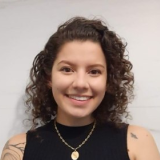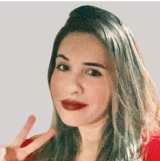Hire Remote Product Designers Simply
Hiring skilled and talented product designers is important if you want to build successful digital products. Product designers are pivotal in shaping user experiences, creating intuitive interfaces, and driving innovation. As technology rapidly evolves and user expectations rise, hiring the right product designers has become more important than ever.
In today's competitive market, finding and attracting top-tier product designers requires a strategic approach. It's not just about technical proficiency but also about finding individuals who can understand user needs, collaborate effectively with cross-functional teams, and bring fresh ideas. To ensure a successful hiring process and secure the best talent, it's essential to clearly understand what to look for in product designers and how to assess their skills.
This article will explore the key considerations and best practices for hiring product designers. We'll delve into the technical and communication skills to prioritize, discuss important aspects of working with product designers, and provide valuable insights into conducting interviews.
Whether you're a startup looking to build a product team or an established company aiming to strengthen your design capabilities, this guide will equip you with the knowledge and tools to hire product designers effectively for your business needs.
Now, let's dive into the essential aspects to consider when hiring product designers and how to identify the best fit for your organization's unique needs.
What to look for when hiring Product Designers
Technical skills
When hiring product designers, it is essential to consider their technical skills to ensure they can effectively contribute to your design development process. While creativity and a strong design sense are important, Product Designers should also possess proficiency in various tools and technologies relevant to their field.
They should be well-versed in design software such as Adobe Creative Suite, Sketch, Figma, or InVision, commonly used to create visual designs, wireframes, and prototypes. Additionally, knowledge of coding languages like HTML, CSS, and JavaScript can be advantageous for collaborating with development teams and implementing designs.
A competent Product Designer should have a solid understanding of user experience (UX) principles and be familiar with UX design tools like Axure RP or UserTesting.com. They should also be proficient in creating responsive designs and know mobile design guidelines to ensure seamless user experiences across different devices.
Moreover, understanding design systems, component libraries, and version control systems can facilitate collaboration and consistency in design implementation.
Communication skills
Effective communication is crucial for project management. To collaborate with cross-functional teams, understand project requirements, and translate them into compelling design solutions. Strong communication skills enable them to effectively present and articulate their design concepts, ideas, and rationale to stakeholders, including clients, developers, and product managers.
Hire a product designer who is an active listener and can empathize with users and understand their needs and pain points. This allows them to design intuitive and user-centred industrial design experiences.
They should also be proficient in visual communication, using appropriate design language and storytelling techniques to convey ideas effectively. Clear and concise written and verbal communication skills are essential for conveying design specifications, feedback, and documentation to team members and clients.
Design system implementation and maintenance
Design systems ensure consistency, scalability, and efficiency in product design. When hiring Product Designers, assessing their experience and knowledge in implementing and maintaining design systems in the product development process is valuable. A design system encompasses reusable components, patterns, and guidelines that ensure a cohesive and harmonious user experience across digital products and platforms.
Product Designers should have hands-on experience developing and maintaining design systems using tools like Sketch Libraries, Figma Components, or design system-specific platforms like InVision DSM. They should understand atomic design principles and be able to create modular and scalable design components.
Proficiency in collaborating with development teams to integrate design components into code repositories, such as using tools like Storybook or GitHub, is also advantageous.
Usability testing and user research in product designers
To create meaningful and user-centric designs, Product Designers should have a strong foundation in usability testing and user research methodologies. These skills allow them to gather insights about user behavior, preferences, and pain points, which can inform design decisions and improve the overall user experience.
When hiring Product Designers, consider their experience conducting user research activities such as user interviews, surveys, and usability testing sessions. They should be able to plan and execute research studies, analyze data, and derive actionable design insights. Proficiency in tools like UserTesting.com, Optimal Workshop, or Hotjar can aid in conducting remote usability testing and gathering qualitative and quantitative data.
Moreover, Product Designers should be able to translate research findings into design recommendations and iterate on design solutions based on user feedback. This iterative design process ensures continuous improvement and validation of design decisions throughout the product development lifecycle.
Top 5 Product Designers Interview Questions
What are the key metrics that will help product designers?
Asking this question allows you to gauge a candidate's understanding of the impact of design on key metrics such as user engagement, conversion rates, or customer satisfaction. Look for answers emphasizing the importance of user-centric graphic design, usability testing, and iterative design improvements based on data analysis. A competent product designer should be able to explain how their design decisions can contribute to measurable business outcomes.
Explain the concept of Design for Manufacturability (DFM) and its importance in product design. Provide examples of DFM techniques you have utilized in the past.
Asking this question assesses a candidate's understanding of Design for Manufacturability (DFM) and its significance in product design. A competent product designer should grasp the principles of DFM, which involve designing products in a way that optimizes the manufacturing process, reduces costs, and ensures efficient production.
Their answer should highlight their familiarity with techniques such as simplifying part geometry, selecting suitable materials, and designing for assembly. Look for candidates who can provide specific examples from their past projects where they applied DFM techniques to improve manufacturing efficiency and quality.
How would you perform an efficient product design testing method?
Testing and validation are crucial aspects of the product design process. Inquiring about a candidate's approach to product design testing allows you to evaluate their methodology and attention to detail. Look for answers about user testing, usability studies, and feedback collection. A skilled product designer should be able to discuss how they iterate on their designs based on user insights and address potential usability issues.
What type of prototype iterations would you follow during your design process?
Asking about prototype iterations provides insight into candidates' ability to iterate and refine their designs based on feedback and user needs. Look for answers that demonstrate a systematic approach to prototyping, such as low-fidelity wireframes, interactive prototypes, and user testing at different stages. A competent product designer should be able to explain how they use prototyping to validate design concepts and gather actionable feedback.
What different tools do product designers use for efficient design workflows?
This question allows you to assess a candidate's familiarity with design tools and ability to adapt to new technologies. Look for answers that mention popular design software, collaboration platforms, and prototyping tools. Proficient product designers should be able to discuss their experience with tools like Adobe Creative Suite, Sketch, Figma, or InVision, and explain how they leverage these tools to enhance their design workflow and collaboration with other team members.
















